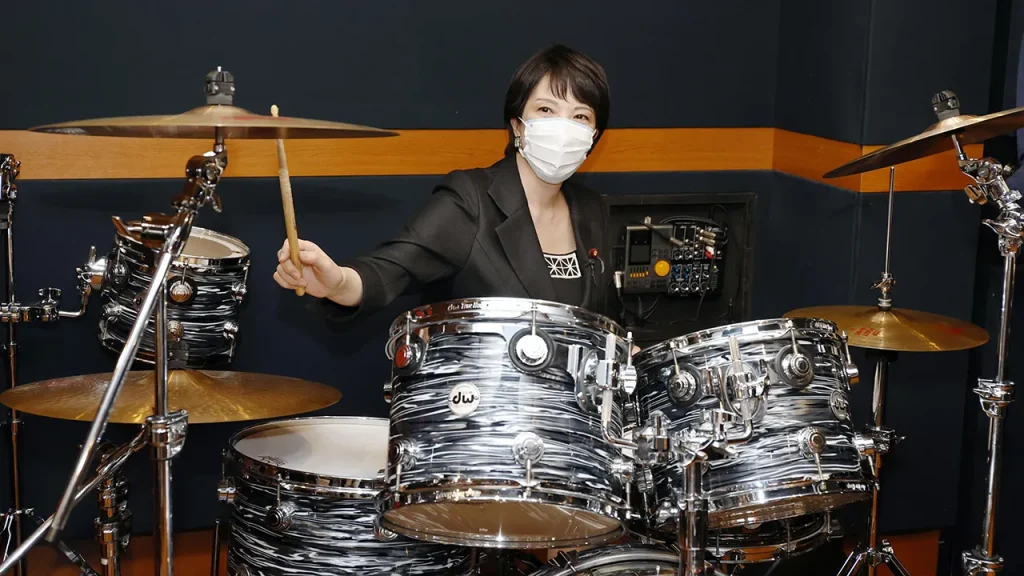Trump Meets Japan’s First Female Prime Minister Amidst Rising Regional Tensions
As President Donald Trump arrived in Japan on Monday, he extended warm words to Sanae Takaichi, who made history earlier this month by becoming Japan’s first female prime minister. This diplomatic engagement marks Takaichi’s first major international test since taking office following former Prime Minister Shigeru Ishiba’s resignation after the Liberal Democratic Party lost its upper-house majority in July. At 64, Takaichi brings to the role a fascinating blend of unwavering conservative principles and an unexpected rock-and-roll background, often drawing inspiration from Britain’s “Iron Lady,” Margaret Thatcher. The meeting between these two leaders comes at a critical juncture for Asia-Pacific relations, with discussions expected to center around regional security, trade relations, and Japan’s defense spending—areas where their perspectives largely converge.
Takaichi’s rise to Japan’s highest office represents a remarkable journey for someone outside the traditional political dynasties that have long dominated Japanese politics. Born in Nara Prefecture to working-class parents—her mother a police officer and her father employed at a Toyota-affiliated car company—she frequently describes herself as an outsider in Japan’s elite political circles. This background sets her apart in a system where family connections often determine political advancement. Before dedicating herself to public service, Takaichi channeled her energy into unexpected outlets, playing drums in a heavy metal band that performed songs by Deep Purple and Black Sabbath. Reports suggest she still maintains an electronic drum kit in her Tokyo residence, using it with headphones to decompress after demanding workdays. In her younger years, she was also known as an enthusiastic motorcycle rider, further distinguishing her from Japan’s typically reserved political establishment.
“She’s a hawk on China, and that’s exactly what’s needed right now,” noted Gordon Chang, an Asia analyst and author, in an interview with Fox News Digital. Chang emphasized the strategic importance of this meeting, suggesting that a strong U.S.-Japan relationship will strengthen Trump’s position in discussions with Chinese President Xi Jinping. “He can say, ‘Look, the alliances are strong and getting stronger,'” Chang explained. The analyst also highlighted the meeting’s heightened significance given concerns about America’s alliance with South Korea, where he described leader Lee Jae-myung as “very pro-China and very anti-American.” This regional dynamic makes strengthening U.S.-Japan ties even more crucial, with Chang expressing confidence that “Takaichi is going to continue Japanese policies” that have supported this vital partnership.
Ideologically, Takaichi is widely recognized as carrying forward the legacy of former Prime Minister Shinzo Abe, particularly regarding his vision to revise Japan’s pacifist constitution and enhance the country’s defense capabilities. Her economic approach largely continues Abe’s “Abenomics” strategy of fiscal expansion and monetary easing—notably diverging from the austerity measures associated with her idol Margaret Thatcher. However, her assertive communication style and unwavering ideological discipline clearly echo qualities that made Thatcher such a formidable leader. Takaichi has noted that she admires Thatcher’s “strong character and convictions” and had the opportunity to meet the former British leader at a symposium shortly before Thatcher’s death in 2013, an encounter that appears to have reinforced her political philosophy.
On domestic social issues, Takaichi maintains firmly traditional positions that reflect her conservative worldview. She has consistently opposed same-sex marriage, rejected proposals allowing separate surnames for married couples, and supported maintaining male-only succession for Japan’s imperial family, according to The Associated Press. These positions establish her as one of Japan’s most socially conservative leaders in recent memory, even within the generally center-right Liberal Democratic Party. The combination of these traditional social values with her unconventional personal background—Japan’s first female prime minister with a history of playing drums in a metal band and riding motorcycles—has created a public image that balances strict political discipline with personal nonconformity in fascinating ways.
As Trump and Takaichi prepare to meet in Tokyo, regional security concerns loom large over their discussions. Japan has recently described the alliance of China, Russia, and North Korea as the “gravest threat” to global order since World War II, reflecting growing anxieties about aggressive posturing from these nations. Takaichi’s hawkish stance toward China aligns closely with positions Trump adopted during his previous administration, potentially creating common ground for cooperation on regional security matters. Their meeting represents not just a bilateral discussion between longtime allies, but a critical moment for recalibrating security arrangements in a rapidly changing Asia-Pacific environment. With Takaichi’s reputation for unwavering convictions and Trump’s transactional approach to international relations, the outcome of this first encounter could significantly influence the trajectory of U.S.-Japan relations during this period of heightened regional tensions.


